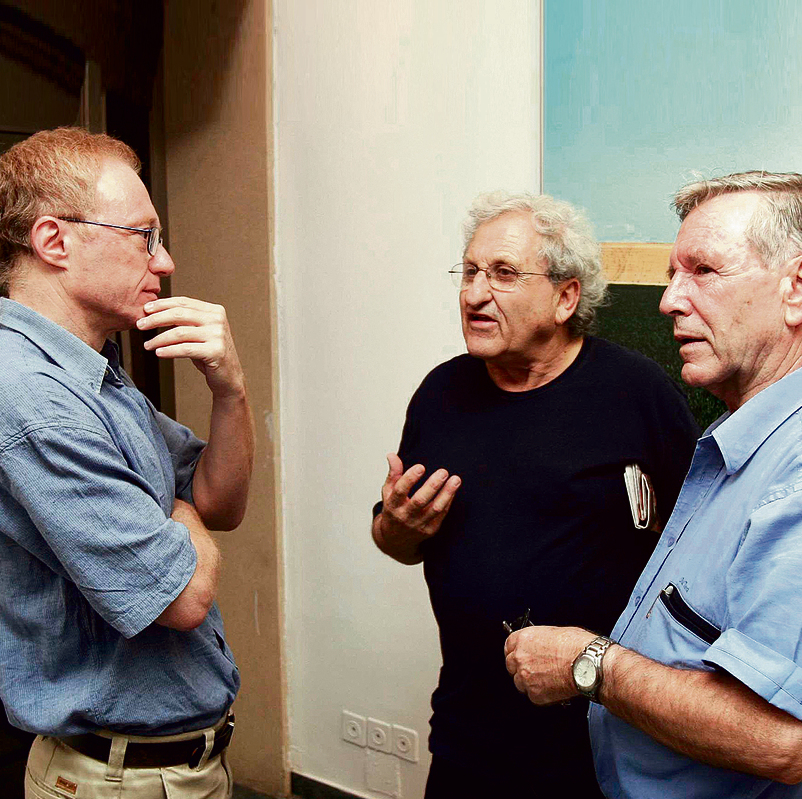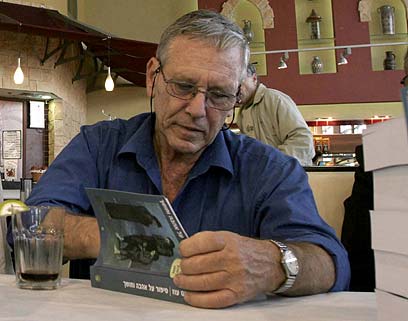Amos was two and a half years my junior. He left Jerusalem at the age of 14 and moved to a kibbutz. Yet every Friday he would visit his father's house in Jerusalem where he was in the Scouts movement and participated in group activities. I was their leader, but I didn't really notice him. From time to time, he would remind me that he used to be my student. "How could I have missed you?" I would ask, to which he would reply, in his own way, "I was shrunken to lower the grass."
Shrunken because his mother had died, because he moved to a strange kibbutz as a child. But Amos was strong, very strong even. Strong in his solitude.
After his father passed away at a young age, I felt like Amos was my little brother. I don't have a brother so I told him that he was one to me. That was the basis of our relationship — fraternal, beyond literature, beyond our shared political and ideological views.
For the past 60 years, we kept in touch by phone and met every couple of weeks. We guided one another, in the name of our fraternity, and gave one another strength.
Amos taught me public courage, especially after the Six-Day War when he went against the fever of annexation and Jewish settlements, and stood up himself against all the kibbutz members who did not accept his views. It wasn't like Uri Avnery criticizing the occupation, Amos had to go against the very people who sat beside him every day at breakfast.
He was the epitome of a man, an intellectual, someone who took a moral stand without losing his affability. He had solidarity with the people right to the end.
We could talk for hours about literature, life, politics, ideology, Chekhov. We would also read each other's work: Amos was my first reader, after Ika, my wife; and I was his first reader, after Nili, his wife.
Amos was a brave man and a wonderful writer. He was a man who realized his ambitions, and was one of the greatest authors in Israel's history.
No one is irreplaceable —but Amos will be remembered as one of the greats. He is one of the most decorated writers in terms of prizes, but most importantly, his work endures. His novels are still read and his voice is still heard. His work lives on and he will always have a place in Hebrew literature and culture.
Amos Oz, my brother, my teacher : http://bit.ly/2F2kzZI


No comments:
Post a Comment